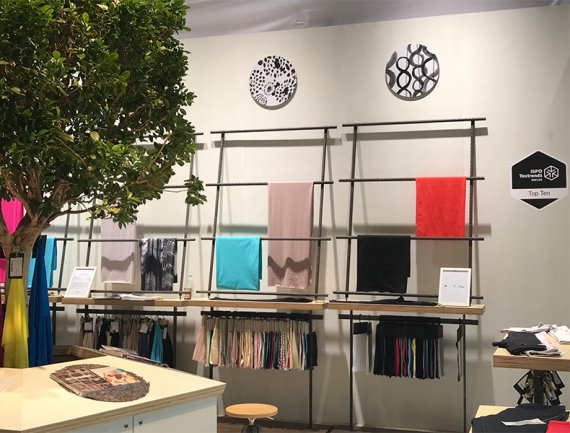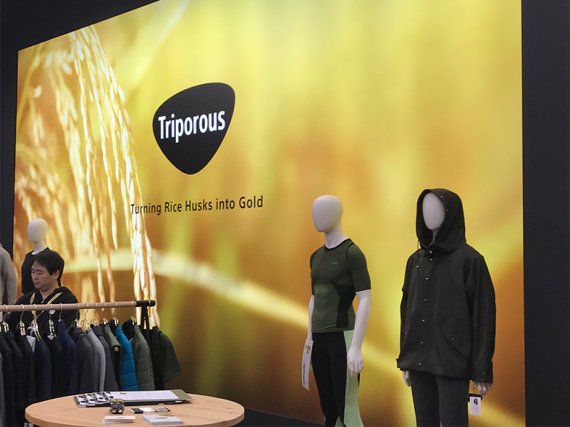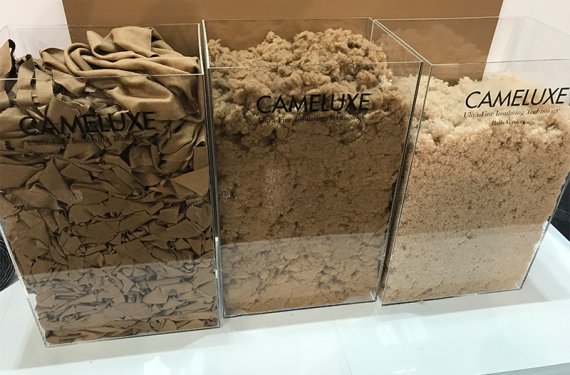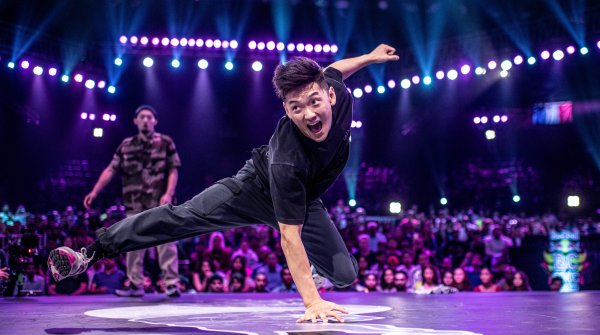
The ISPO Textrends Hub proved to be the springboard for sourcing for brand developers and designers for the Fall/Winter 21/22 season, bouncing from the awarded products seen at the forum to the mills and suppliers exhibiting at the show. This tactile connectivity is essential in speeding up the supply chain, energizing ideas and connecting companies along the way. Covering ten categories and with over 450 products, the value of the ingredient sourcing hub was clear to see, as brands move forward to the following winter season.
Whilst all levels of the textile and trim sector of the supply chain has some form of sustainability, brands cannot cherry pick products to claim a sustainable product. It isn’t enough that the fibers, fabrics and trims are sourced responsibly. This responsibility has to apply through the entire chain from brand ingredients through to production, packaging and transport and at retail too. Full traceability is what the consumer wants, in turn with information on how they care for their garments to get the best out of it with the lowest impact as well as how to responsibly discard the garment at the end of its life.

Virgin synthetic yarns featured in innovative structures, the benefit of which is the longevity these products bring to a product, a longer life span, that can also fuel the sell-on secondhand market, getting a longer life cycle out of a garment. Whilst performance synthetic yarns are crucial for the market, the major players are also offering recycled performance yarns, with the functionality on par with the conventional range.
Sensil produced by Nilit added to its Eco-care recycled nylon 6.6 already a staple in its ‘We (ECO) Care’ campaign, the launch of Eco-care Breeze, the recycled cooling yarn expanded the portfolio.
Dope dyed yarns and new water free dyeing techniques are becoming more prevalent in the textile chain, saving energy, water and money. ISPO Textrends awardee, NTX offered brilliant solid tones and prints with a new printing machine that requires no water and minimal energy as it uses the ambient heat to create the effect.
For Hyosung, the introduction of its 100 per cent recycled spandex, part of the Regen family, led the way as the first pure recycled spandex. In turn many of the performance yarns from the polyester and nylon sector are now available as recycled.
The sports and outdoors markets have no choice but to pursue responsible production and business conduct, with sustainability continuing to evolve at all levels of the textile chain. However, as noted in the textile collections for Fall/Winter 21/22 at the ISPO Textrends Hub and surrounding exhibitors, sustainability is becoming the norm, and not just a marketing shout out.

By the middle of this new decade, sustainability, the most repetitive word used at the show, will be a word of the past, as its characteristics discreetly embed in the textile chain for a cleaner future as we work in a smarter and more efficient way. As predicted sustainability is destined as an inherent part of the DNA of our industry, from cradle to cradle, from grassroots to consumer and back. Responsibility is the way forward for us all.
Read more from Louisa Smith and ISPO Textrends:
 ISPO TextrendsMore diversity outdoors: Polartec leads the way
ISPO TextrendsMore diversity outdoors: Polartec leads the way
- Awards
- Mountain sports
- Bike
- Fitness
- Health
- ISPO Munich
- Running
- Brands
- Sustainability
- Olympia
- OutDoor
- Promotion
- Sports Business
- Textrends
- Triathlon
- Water sports
- Winter sports
- eSports
- SportsTech
- OutDoor by ISPO
- Heroes
- Transformation
- Sport Fashion
- Urban Culture
- Challenges of a CEO
- Trade fairs
- Sports
- Find the Balance
- Product reviews
- Newsletter Exclusive Area
- Magazine




